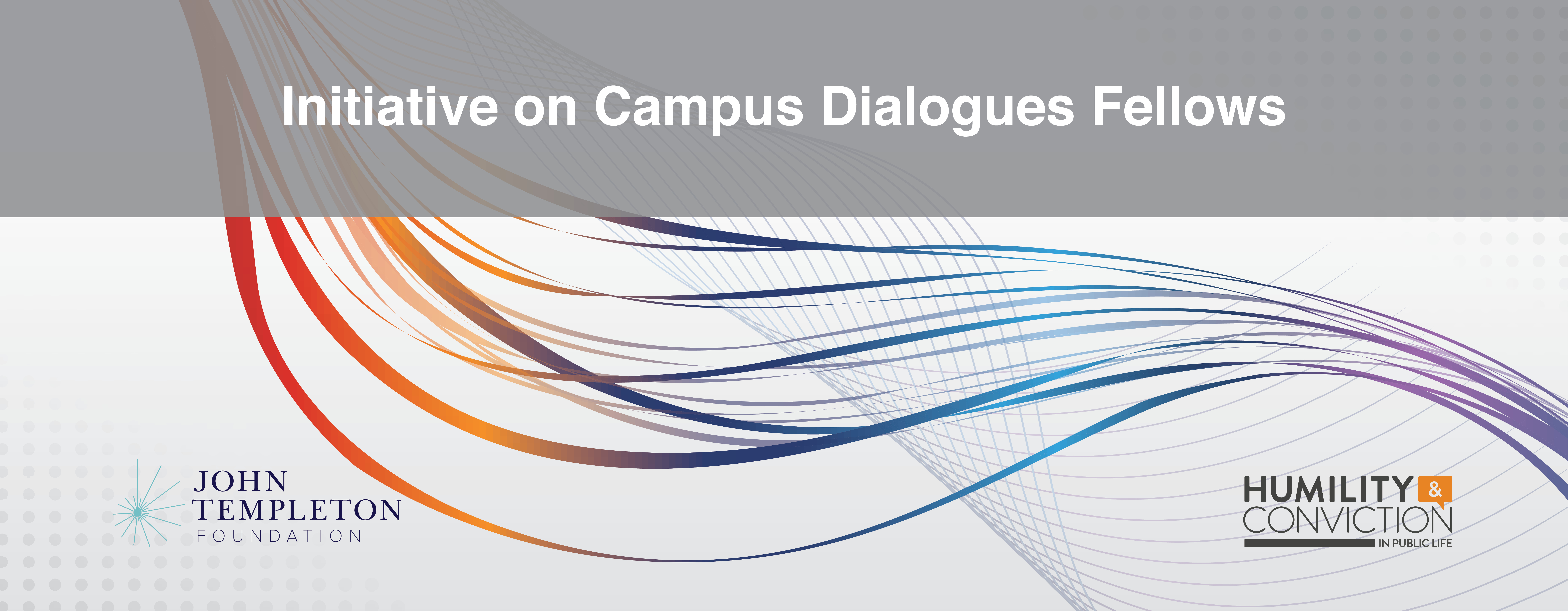
The ICD Fellowship Program is a University-wide partnership, with participation from academic, service, outreach and administrative units dedicated to bringing together research in the humanities with community outreach and engagement. In our second year of this fellowship, we are proud to gather seven fellows, or fellowship teams, who will convene at regular intervals over the course of the academic year 2017-18. New and continuing Fellows will engage in a year-long, shared-learning process in which they develop their own projects for applying dialogue and deliberation to a specific public problem or issue making use of, and potentially contributing to, current research-in-practice.
Special thanks to our sponsoring partners:
- Humility and Conviction in Public Life
- Humanities Institute
- Department of Student Activities, Community Outreach Programs, Services, and Initiatives
- Office of Public Engagement
- UConn Extension, School of Agriculture, Health and Natural Resources
- UConn Public Health Program
- Division of Student Affairs
- The Parents Fund
- Thomas J. Dodd Research Center
- Dean’s Office, College of Liberal Arts and Sciences
- UConn Human Rights Institute
Meet Our Fellows and Learn About Their Projects
Constructing Education through Community Engagement and Democratic Dialogue
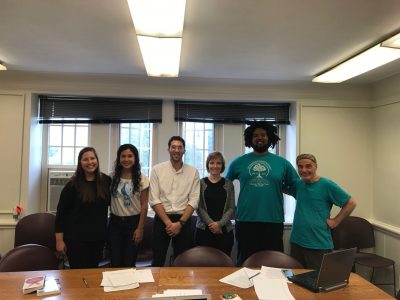
Team Members:
Dominique Courts, Graduate Student, Human Development & Family Studies, UConn-Storrs
Gregory Doukas, Graduate Student, Political Science, UConn-Storrs
Varun Khattar, Community Organizer, CT Center for a New Economy
Len Krimerman, Emeritus Professor, Philosophy, UConn-Storrs
Patricia O’Rourke, Graduate Student, Educational Psychology, UConn-Storrs
Darian Spearman, Graduate Student, Philosophy, UConn-Storrs
Katherine Perez Quinones, Graduate Student, Latino and Latin American Studies, UConn-Storrs
Heather Muraviov, Graduate Student, Philosophy, UConn-Storrs
Executive Summary:
Our aim is to reimagine the function of education in America by bridging the gap between the classroom and the community. Though our country promotes itself as an exemplary democracy, we’ve noticed that there are very few opportunities to practice democracy in deep ways. We believe that we can help remedy this problem by constructing an innovative philosophy of education graduate course which partners with the Willimantic community and serves as an experiment in democratic, community oriented learning. We hope that by creating a classroom space dedicated to community collaboration and democratic dialogue we can create a model by which educational institutions can deepen their students’ connection to democracy and gain the dialogical skills it demands when practiced sincerely.
A Framework for Food Systems Research and Public Engagement
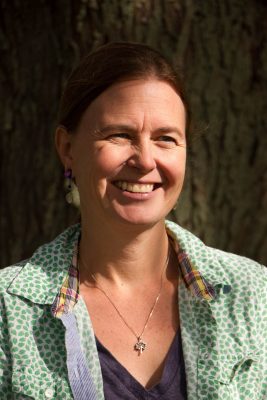
Team Members:
Jiff Martin, Associate Extension Educator, UConn Extension, College of Agriculture, Health and Natural Resources
Rebecca Boehm, Postdoctoral Fellow, UConn Rudd Center for Food Policy & Obesity
Julia Cartabiano, Spring Valley Student Farm
Kristen Cooksey Stowers, Postdoctoral Fellow, UConn Rudd Center for Food Policy & Obesity
Spencer Curry, Founder, Trifecta Ecosystems
Michael Puglisi, Associate Extension Professor, Nutritional Sciences, UConn
Executive Summary:
Dialogue in Connecticut is about how to build a sustainable, equitable, and just food system that can supply fresh, healthy, local food suffers from two major impediments: 1) over simplification of food and farm issues toward good versus bad, and 2) no consistent platform for researchers and educators to interact with stakeholders and activists in Connecticut.
Our Fellowship Team aims to design a productive pathway for UConn-affiliates to contribute in a meaningful way to non-UConn affiliates and their endeavors to strengthen the food system in our state. A secondary goal is to foster new cross-campus dialogue among faculty, staff, students, programs, and initiatives toward a common framework and set of values by promoting sustainable and just food and farm policies, science, and practice.
There are tremendous academic resources at UConn devoted to obesity prevention, dietetic training, nutrition outreach, food waste management, student farming, sustainable environmental policy, and agriculture production. Bioscience tends to dominate UConn’s contribution, from plant science to human nutrition. Humanities-based approaches that lift up approaches that consider food justice and health equity can help inform UConn’s contribution. Ideally, UConn’s work should readily align and support the dozens of non-profits, community food networks, and food policy councils that have taken shape in the last decade and have embraced the values of a sustainability and food justice.
Our six-member Fellowship Team includes representatives of UConn Extension, Spring Valley Farm, Rudd Center for Food Policy & Obesity, CAHNR Dept. of Nutrition Sciences, and Trifecta Ecosystems (an innovative non-profit in CT driving toward a food revolution). We will convene in the fall of 2017 to further define the underlying challenge, and then identify additional UConn and non-UConn affiliates that can help expand our dialogue. Together, we will implement an approach to increasing reasonable dialogue and building productive partnerships across campus and with the broader public. Potential ideas are hosting a large forum event, creating a common framework for decision making, or facilitating the creation of a new professional network.
Audio Shelfie Project
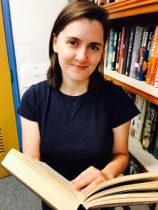
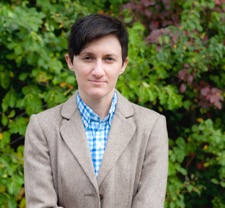
Team Members:
Mary Mahoney, Graduate Student, History, UConn-Storrs
Malaena Taylor, Graduate Student, Sociology, UConn-Storrs
Executive Summary:
The Audio Shelfie project attempts to answer a deceptively simple question: what does it mean to be a reader? As the author Marilyn Robinson once suggested, there is nothing more human than a book. Yet there are surprisingly few digital projects on what it means to be a reader in the humanities today. Our project will conduct several brief interviews with readers. The goal is to record a larger range of responses to one focused question about an individual’s life as a reader. A sample question might be: Can you describe the most significant reading experience of your life? The generated recordings would be given to each person as a "shelfie." Our team will also add this shelfie to a website that would itself form a kind of library. Whereas physical libraries are collections of books, this transient project collects lasting digital snapshots of how people relate to books. At a time when college- aged students and millennials are making use of public libraries now more than any other group, it is vital to speak to these subjects about their relationships with books. Thus, this initiative seeks to shape and add to conversations about identity and difference in disparate communities through complex questions about being a reader. In the end, the Audio Shelfies Project will create a record of what defines our relationship to books, what that relationship can tell us about how we relate to one another, and perhaps even offer some insight into what it means to be human.
Community Outreach Dialogues

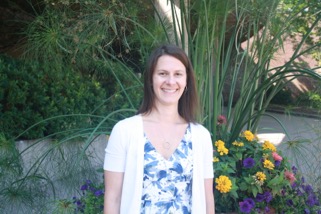
Team Members:
Cynthia Meléndez Montoya, Graduate Student, International Studies-Latino Studies, UConn-Storrs
Sara Cook, Program Coordinator, Community Outreach, UConn-Storrs
Executive Summary:
Our series of Dialogues have as a general purpose to expose our students to themes of democracy and social justice as we recognize the necessity to approach to different issues and create safe spaces for students to learn, engage and discuss these topics.
As a first dialogue, we have planned the screening and discussion of the documentary “Poverty Inc.” that addresses the issues of poverty, humanitarianism as a business, and proposes sustainability solutions. Here, we want our students not only to understand the dangers of the aid industry, but also to recognize the neocolonial approaches to constructing “the other in need” subject. Because our students must deal with these issues within their service work and programs, we realize many may begin these volunteer opportunities without firsthand knowledge of the critical issues and many rely in their personal beliefs. These dialogue are then thought not only to facilitate cultural competence, but also for our students to become critical of their own service work. Here, the reflection part of the dialogue is crucial for students to think about what new perspectives or approaches they have learned and can share with other students in their programs.
For our second event, we are also planning a same format of talk and discussion with the Katal Center for Health, Equity and Justice. Here, we want students to attend a presentation where they can get a general knowledge of the issue of mass incarceration and inequality while in addition linking these to topics to the matter of public health. We expect our students to apply this knowledge in their own projects, academic work and to become advocates.
Hartford Listens
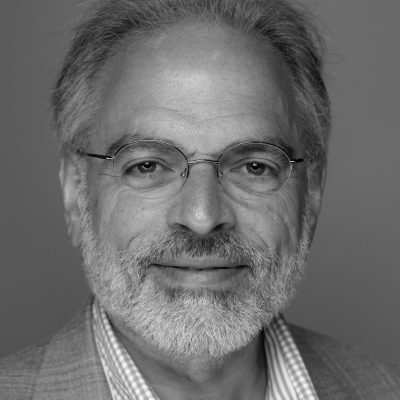
Team Member:
Richard Frieder, Community Engagement Consultant, Community Capacity Builders
Executive Summary:
The need for community engagement is greater today than it has been in decades. Our political system is bordering on dysfunctional. Many people feel detached from their communities. Distrust of government is at an all-time high.
Civic participation is an important part of the solution to this problem as it will help create an environment in which everyone has a voice in decisions that strengthen communities. Just as we need the physical infrastructure of roads and buildings, we need to build, strengthen, and sustain civic infrastructure to support democracy.
To address this need Hartford Listens will, over time, establish an ongoing series of citywide community dialogues that will support civil, public deliberation, leading to community-driven change.
For the 2017-18 academic year the focus will be on the following:
- Conduct research to identify characteristics of productive dialogue, barriers to dialogue, and the role of humility in public discourse.
- Begin to develop an initial plan and pilot project for citywide dialogues.
- Research similar efforts elsewhere, build a diverse coalition to drive the initiative, form an advisory board, and identify organizational partners.
- Explore potential roles for UConn (Storrs and Hartford campuses) including roles for students, faculty, and institutional roles.
Emphasis in the fall semester will be on research and planning. Implementation will begin in the spring semester.
Hartford Listens will complement the goals of the ICD, by bringing together research in the humanities with community outreach and engagement, and by bringing together the UConn community with residents and other stakeholders in Hartford.
Archives and Public Discourses: Immigration Narratives from Connecticut’s West Indian Diaspora, 1940-2010
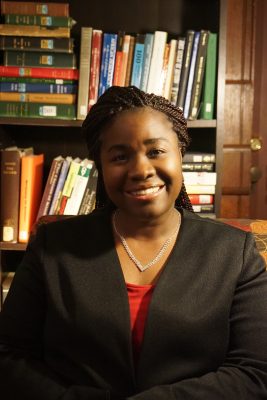
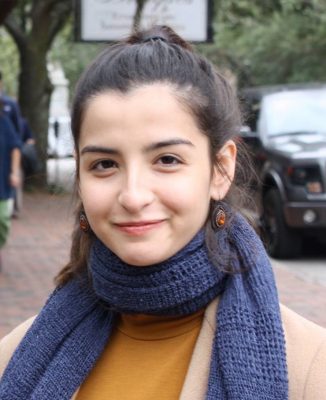 Team Members:
Team Members:
Fiona Vernal, Associate Professor, History/Africana Studies Institute, UConn-Storrs
Arianna Diaz, Student, Global Studies and English/Human Rights and Middle Eastern Studies
Executive Summary:
Archives and Public Discourses chronicles the history of Caribbean migrants in Connecticut through the lens of public discourses about globalization, immigration, and urbanization in major metropolitan areas. The project pairs a voluminous collection of local community archives drawn from West Indian social clubs and fraternal organizations with coverage from the
Hartford Courant and Hartford Times, records of the Connecticut Tobacco Valley Association, and oral histories to examine the particular experiences of Connecticut’s largest foreign-born population. West Indian organizations generated a vast array of minute books, annual reports, souvenir booklets, photographs, videos, letters, and other historical artifacts that document their labor in Connecticut’s shade tobacco industry, their foundation of the annual West Indian parade, and the role of women’s auxiliaries. Their attempts to define and sustain their cultural legacies in the second and third generation provide an important narrative arc to major debates in American immigration and social history. These Caribbean immigration narratives offer kaleidoscopic, deeply personal, resonant, and revelatory ruminations on what it means to be American. The project spans the 1940s when agricultural guest worker programs prompted early immigration waves, the more permissive decades of the 1960s, ‘70s and ‘80s that brought record numbers of women and children, and the contemporary post-Obama period when the specter of deportations and anti-immigrant sentiment have generated new anxieties in all immigrant communities. The goal is to create a powerful mosaic of immigration and identity formation in the United States that can convey the relevance and meaning of history in people daily lives.
E.O. Smith Democratic Dialogue Project
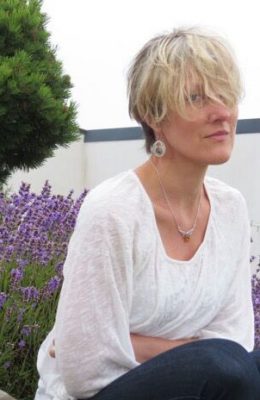
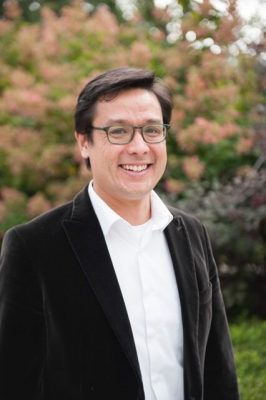
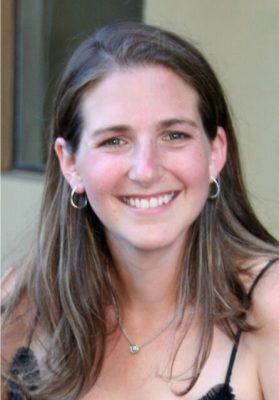
Team Members:
Glenn Mitoma, Assistant Professor, Human Rights Institute/NEAG, UConn-Storrs
Amy Nocton, Spanish and Italian Teacher, E.O. Smith High School
Eleiza Braun, Independent Campaign and Development Consultant
Executive Summary:
By modeling the use of dialogue and deliberation for addressing issues of critical concern to the broader community,
this project seeks to demonstrate the impact of democratic
discourse practices in enhancing student content learning, providing opportunity for student leadership and voice,
developing student and teacher civic discourse skills, and improving school climate and community.
Togetherness through Decolonization
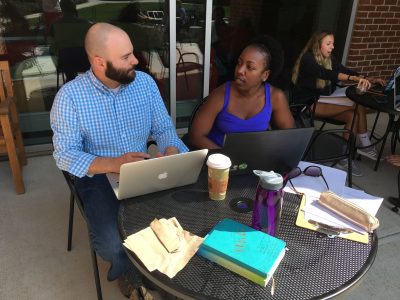
Team Members:
Mark Kohan, Assistant Clinical Professors, NEAG, UConn-Storrs
Sian Charles-Harris, Graduate Student, NEAG, UConn-Storrs
Executive Summary:
Togetherness through Decolonization envisions the university community as leaders in advancing an inclusive and just society. This project applies the concept of intellectual humility in addressing social, educational, and environmental issues created by the legacy of settler-colonialism in and beyond Connecticut. The legacy of settler-colonialism is manifested in present-day challenges facing Indigenous and non-Indigenous peoples alike, posing threats to both civic participation and basic human rights. Through the creation of a campus Task Force on the Legacy of Settler-Colonialism (TF-LSC), this project utilizes Everyday Democracy’s “Dialogue-to-Change Process” as well as a variety of multimodal activities and events to create both performances and spaces of intellectual humility that inform public discourse. Its primary goals are to 1) raise awareness of social injustices that have taken place in the state or to the inhabitants of the state and create new possibilities for place-based education and commemoration, 2) promote pedagogies that support critical thinking and reflection related to power, privilege and oppression, 3) foster dialogue that brings together people across ideological and cultural divides, and 4) enhance moral courage toward action and equitable solutions.
Outcomes:
Campus and community members affiliated with the TF-LSC will:
- Employ dialogue and deliberation to foster humility and help realize community-driven, sustainable change (e.g., in partnership with the Mashantucket Pequot Museum).
- Facilitate the development of settler-ally orientation in campus and community spaces.
- Form community/ies of practice based on the principles of Civic Courage, Intellectual Humility and Civic Reflection
- Investigate and promote arts-based and multi-modal approaches to civic dialogue
- Support the development of a broader framework for Humility and Conviction in Public Life for Educators
Undergraduate Interns
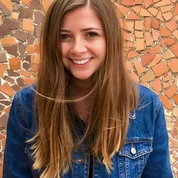
Taylor Thompson
"My name is Taylor Thompson and I am a senior studying history and political science. While my interest in history is broad, spanning many time periods and regions of the world, studying American history has had the most profound impact on my experience here at UConn. Examining the historical development of America has interested me in the role that marginalized groups have played in our past. The experiences of women, minorities, and different religions are an integral part of the American story, and I wanted to learn more about how the current political system interacts with those groups. This inspired me to double major in political science, where I took many political theory courses to better understand the thinking and philosophies behind American politics. Being a history and political science double major has educated me on how marginalized groups fit into the narrative of America, and how they have been affected by public policy. After I graduate, I plan on engaging with affected communities to learn firsthand about how past and existing policies have been a force for oppression in America. I also want to learn more about policies that have advanced the rights of oppressed Americans. I think it’s important to continue the conversation about the historical legacy of race, gender, and religion in America, so that marginalized groups are fairly represented in our political system today. In addition to working on the ICD Fellowship program generally, I will be closely involved in organizing and running the Encountering the 1% event and will assist in plans for the 2017 Metanoia, focused on confronting racism."
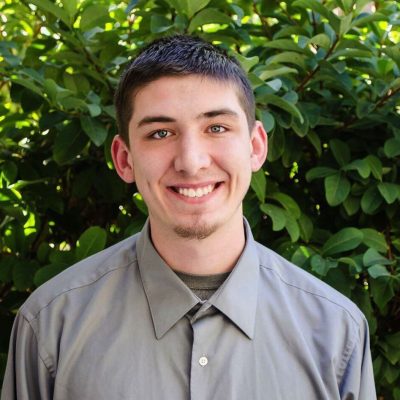
Jordan Lumpkins
"I am a junior history major here at UConn.I grew up in Plainfield, Ct. where I first began to be interested in the rich history of Southeastern New England. Upon graduation I aspire to obtain two masters, one being in education and the other in history. I then plan to dedicate my life to educating young people. What got me interested in the Initiative on Campus Dialogues project was the combination of local history and public discussion. The opportunity to explore different aspects of history, then assist in the facilitation of public conversation about the topic, is something that will help strengthen skills valuable for my future. In addition to working generally with the ICD Fellowship Program, I will be helping to plan the upcoming Encounters event focused on the Treaty of Hartford and indigenous history and traditions. On a more personal note, I grew up with 11 siblings and raised a variety of animals throughout my early life. My interests include sports, being outdoors, and spending time with my family and friends."